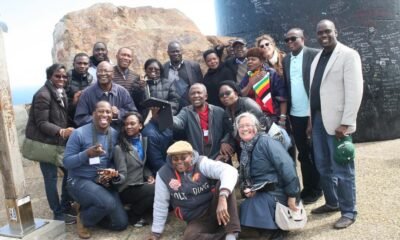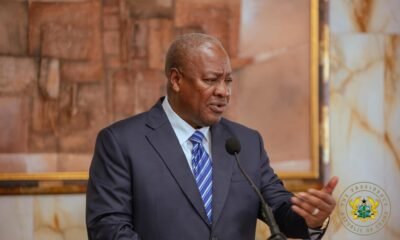Profile
Dr Francis Boateng Agyenim, leading solar energy, research conversation in Ghana
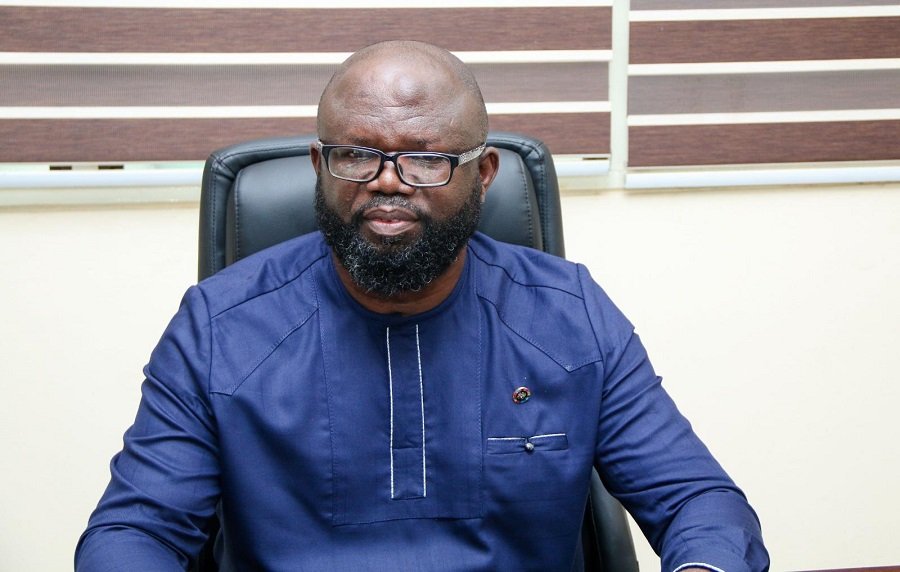
Dr Francis Boateng Agyenim
DR Francis Boateng Agyenim, Director of the Council for Scientific and Industrial Research-Institute of Industrial Research (CSIR-IIR), has over the past years led the advocacy for the utilisation of research and solar energy to transform Ghana’s economy.
Responsible for the day-to-day administration of Ghana’s foremost industrial research and development institute whose mandate is to drive national development and global competiveness in industry through scientific and technological research, Dr Agyenim has led several conversations and supported innovations aimed at making Ghana a research hub in Africa and the world at large.
He is also vocal on solar energy, believing it represents Ghana’s future and Ghanaian industries, and the government must take advantage of same to foster growth.
Born in Asikasu, a village seven miles away from Dormaa Ahenkro in the Bono Region, young Agyenim started his basic school at Asikasu No.1 where he combined education with farming in order to make ends meet.
Steadily, Agyenim gained his Middle School Living Certificate in 1984 at age of 15 before joining the Dormaa Senior High School from 1984-1989 for his O-level certificate.
He then moved to Osei Kyerekwie Senior High School (OKESS) in Kumasi (1989-1991) and later to the Kwame Nkrumah University of Science and Technology (KNUST) in 1998 where he studied Metallurgical Engineering to begin his research journey.
Before completing university, Dr Agyenim secured a job at AshantiGold before moving to Sankofa Gold in Prestea for two years. He travelled to Germany to do his Masters in Energy Conversion and Management in 2000 where he also secured a job in the solar industry for a year to launch his interest in solar energy.
He later moved to the UK where he worked and had a PhD in Solar Energy Engineering. Dr Agyenim also taught in three other universities in the UK-Cardiff, Ulster and Nottingham Universities.
Dr Agyenim moved back to Ghana in 2012 to head the Ghana Technology University College (GTUC) in 2012 as the Dean of Graduate School for four years.
While at GTUC, Dr Agyenim created a system of dual accreditation where Coventry University and other universities were partnering GTUC to teach foreign programmes in Ghana with students issued dual certificates. His key responsibilities included teaching and conducting cutting-edge research in renewable energy systems and sustainable energy technologies as well as some administrative functions as Course Director.
He also worked as Lead Consultant in several research and development projects and moved to CSIR-IIR in October 2016 as Director till date.
Dr Agyenim has consulted for several organisations on sustainable energy related projects and supervised installation of several solar PV systems in Ghana and Germany. He has over the last five years led the training of 2,900 professional electrical engineers/electricians on how to install and maintain solar systems.
He currently serves on several University and Management Boards including University for Development Studies (UDS) Council, Ghana Nuts Management Board, National Biosafety Authority Management Board, Nursing and Midwifery Council Management Board and CSIR Boards.
Dr Agyenim has developed and implemented several innovations, including the Zero Waste Disposal concept (ZeWaD), the CSIR Industrial Innovation Hub (i2-Hub) and novel solar powered absorption cooling system. He has to his credit several peer reviewed articles in the subject area of renewable and alternative energies, including guidelines document for the integration of solar powered absorption cooling systems into buildings and integrated wastewater and faecal sludge management for Ghana.
“Solar is the future and Ghanaians must begin to invest in solar. Interestingly, the solar availability in Ghana cannot be compared to countries where solar is popular like Germany,” he stated.
Thankfully, he said, with the support of Ghana Skills Development Fund, since 2015, nearly 3,000 certified electricians are currently dotted across the country, equipped to install solar professionally as the challenge had always been with the technicalities involved in the installation.
“The quality of panels have improved and could last for over 20 years as compared to the past. Solar at the moment is very robust and indigenous Ghanaian companies must take advantage as done by their foreign counterparts. Currently at the commercial scale, one can break even in five years,” he stressed.
“If the government can dedicate funds into putting solar on all public buildings, in the country to store power, it make the Electricity Company of Ghana (ECG) profitable. ECG should also begin to buy roofs of companies to store solar and sell it back to them. An average company owner is only interested in seeing their electricity reduced,” he suggested.
With his core mandate at the CSIR-IIR, they conduct research and develop products materials and manufacturing, engineering designing and prototyping, calibration and testing, sanitation and environmental management and emerging engineering technology using Artificial Intelligence (AI) to develop products as well as melt metals and building of all parts of machines, among others.
“The difficulty is that the government has not invested into research and for Ghana to benefit from research immensely, there is the need to define an annual area of research and allow organisations to compete and solve societal problems,” he advocated.
That notwithstanding, he led the CSIR-IIR to chalk successes in the areas of Agriculture as their research improved yields of maize, rice, beans and yam in Ghana.
“It is important to find businesses to pick up CSIR-IIR outputs and form partnerships to manufacture the products. I am very keen on how we advance market-ready products sitting on the shelves into business to benefit society,” he mentioned.
He also works as the Chairperson of the National Innovation Challenge and believes that Ghana must be intentional about its development with research and academia, government and business working together to develop the country.
Following his outstanding works, the CSIR-IIR has won several awards including the Ghana Energy Awards for Energy Organisation of the Year-Public and Novel Deployment of Renewable Energy Technology Award in 2018 and 2022 respectively.
Dr Agyenim is married and blessed with five daughters, and loves farming on weekends.
By Michael D. Abayateye
Profile
Patriotism, sacrifice and service — the veterans’ perspective
For men and women with battlefield experience, patriotism, sacrifice, and service are not just abstract ideas, they are lived experiences deep-rooted in hardship and sustained endurance in the line of duty.
Such lifelong duty goes beyond the uniform to include the values of duty, honour, and commitment, long after active military service.
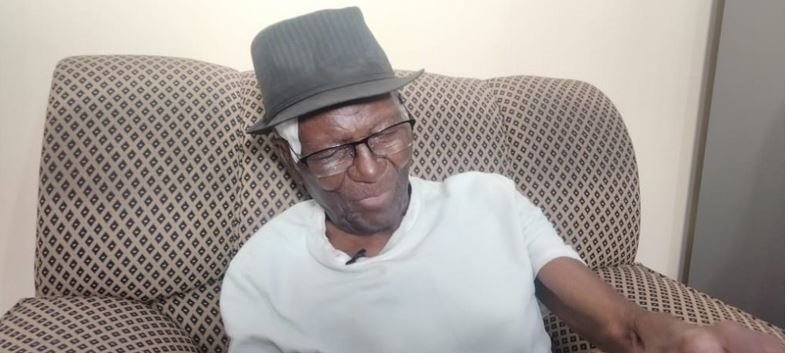
Such has been the life of Ex Lance-Corporal Wisdom Edmund Kudowor, a 97-year-old World War Two (WWII) Veteran, who volunteered for recruitment in 1943 at the age of 15.
He was to be trained and enrolled as a soldier and tradesman for the Artisan Work Company of the then Gold Coast Regiment.
Though looking frail currently after a few days of head surgery, the ex-serviceman’s ability to recall his past experiences was exceptional.
Ex-Lance-Cpl Kudowor lived in an era that saw many young Africans recruited and conscripted to fight for their colonial masters in a war that ravaged half of Europe and claimed almost 85 million lives.
In a brief yet straight to the point interaction with the Ghana News Agency, he expressed no regret in volunteering, despite the imminent danger and harrowing stories about WWII back then.
More surprising was his nonchalant attitude towards the fact that he was not put on pension immediately after service. He expressed no bitterness nor pain.
He returned to the Gold Coast in 1946 after four years of service without any benefits, not until two years ago when he began receiving an annually paid British grant, which was recently increased to 1,350 pounds sterling.
Though the grant did not match the sacrifice, “it is still better than nothing,” he said. Despite his past experiences, the old veterans’ patriotism, sacrifice and service did not wane after his return in 1946, at age 18, to the then Gold Coast.

He gained scholarship to further his education (both home and abroad) and with the knowledge acquired, he served his country for almost half a century, first as a pupil teacher, and rising to become the Headmaster of the Kpando Technical Institute. He headed other educational institutions and retired as a civil servant.
The veteran was not happy about the decline in patriotism and sacrifice, especially among young people in contemporary Ghana.
Listening attentively due to a hearing challenge, the frail-looking veteran pointed to the attitude of the current generation, most of whom were unwilling to go the extra mile to support their country.
He expressed worry over their focus on immediate gains and monetary rewards for little services rendered.
His observation was corroborated by Captain Ben Edmund Duah (Rtd), a veteran, who began his service with the Field Engineer Regiment soon after being commissioned at age 24 as a young officer in the early 1970s.
The retired Army Captain, who once served with the Delta Company of the Five Battalion of Infantry (5BN) among other positions, said: “Patriotism is non-existent in today’s Ghana, unlike our time when we took pride in openly exercising these values.” He, however, did not entirely blame the youth for not exhibiting such traits.
Capt. Duah (Rtd) attributed the seeming non-patriotism by the youth to the struggles they see the veterans go through just to survive, after sacrificing for humanity.
The needs and concerns of patriots and forerunners, particularly veterans in Ghana, were largely unmet, compared to other countries, he said.
“The veterans brought honour to our colonial masters and by extension to Ghana. They were not given what they were promised. Right now, the British Government gives them some support and that is what sustains a lot of them.” Captain Ben Duah stressed the urgency for the country to pay more attention to the concerns and needs of veterans.
“We should see them as people who voluntarily decided to sacrifice their lives for us. If anybody does this for you, you should be fair enough to look at his interest…these are people who have devoted their lives to save us, therefore we should be nice to them in the form of caring for them,” he noted.
When asked for their opinion on many of the youth trying to seek greener pastures abroad due to their lack of confidence in the economy, Capt Duah and L/Cpl Kudowor both agreed that Ghana was still worth sacrificing for, despite the challenges.
Captain Duah, who served during an era awash with military coups d’etats, urged Ghanaians to respect, recognise and be willing to support veterans because government could not shoulder the responsibility alone.
“Citizens should realise that these are people who, some time ago, in their youthful years, sacrificed their precious lives to save others…We expect that as veterans, people will respect and admire them for their values and bravery,” he said.
“I will advise the youth to utilise existing opportunities as a means to serve Ghana. Service to the country, I believe, should be the youths’ primary goal”, Ex L/Cpl Kudowor said.
The two justified the continuous celebration of Veterans Day on the 28 of February as a step in the right direction.
This serves as a platform for the youth to learn about the three values of patriotism, service and sacrifice, the history behind the celebration and the need to respect veterans.
On February 28, 1948, Veterans of World War II, who had fought with the Gold Coast Regiment of the Royal West African Frontier Force, organised a peaceful demonstration, marching to the Christainborg Castle at Osu in Accra, the capital of the Gold Coast, to hand a petition to the colonial governor, demanding their end of war benefits, which they had been promised.
Before reaching the castle, the veterans were ordered to disperse by the colonial police chief. When they refused, he opened fire on them, instantly killing three of the ex-servicemen – Sergeant Adjetey, Corporal Attipoe, and Private Odartey Lamptey.
The 28 February Crossroads Shooting is commemorated every year to honour the veterans for their sacrifice to the country.
—GNA
Profile
Prisca Abah: Ghana’s modelling powerhouse

Ghanaian model, philanthropist and advocate, Prisca Abah, who is known for her contributions to the fashion industry, is strutting her stuff on higher levels.
She was recently selected as one of the models for the Big8 Girls Project, an initiative by Clinton Samuel to celebrate influential African models.
The project consisted of three episodes: the Bio Shoot which highlighted Abah’s professionalism through a corporate-themed photoshoot; Afrodeity which focused on showcasing her confidence and artistry, celebrating the African divine feminine and royalty which presented Abah as a symbol of African cultural pride, embodying strength and elegance.

The Big8 concept, produced by Clinton Samuel, intentionally highlights and celebrates the strongest and most influential models on the African continent, congratulating their steadfastness and contributions to the African fashion industry, even as they grind and win in other aspects of life.
The Big8 sets hierarchy and high standards in the African fashion and modelling industry, crowning eight of them with the ‘Top Model’ status as the leading female models in Ghana at the moment.
“Working with these fiery women will surely ignite more creative minds and stir the pot of positive competition,” said Clinton.
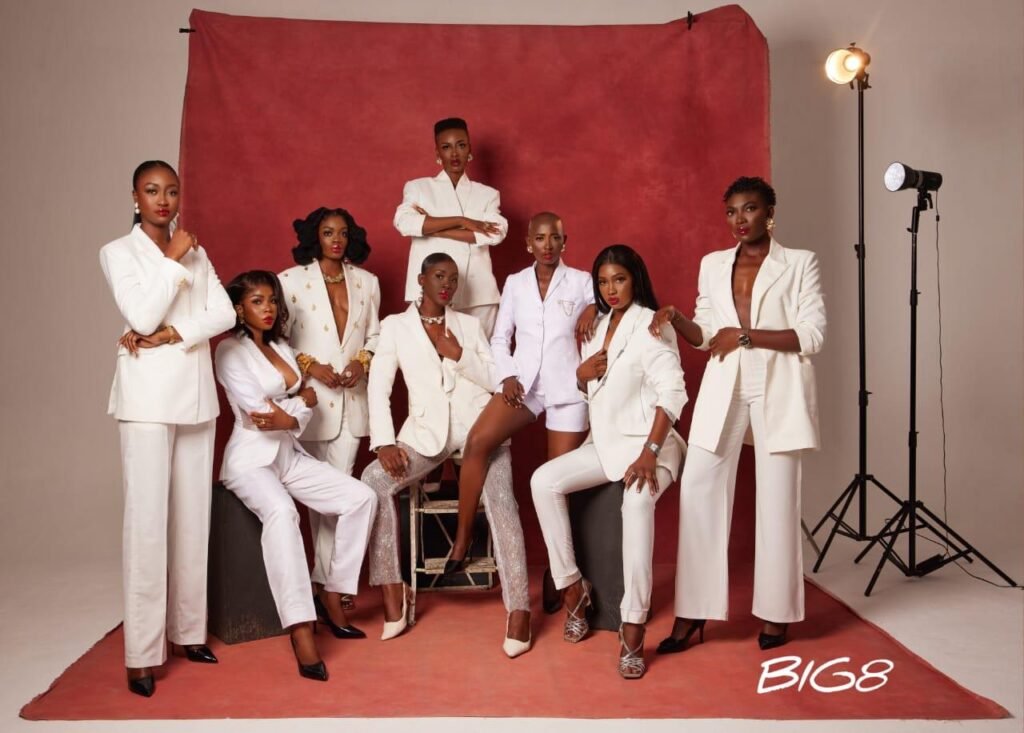
Abah’s early life and career
Prisca Abah began her modelling career in 2013, achieving her first notable milestone in 2014 with an editorial shoot for 5-Star International Modelling Agency. In 2015, she made her runway debut at the Ghana Fashion Awards.
From 2016 to 2018, Abah participated in major African fashion events such as Glitz Africa Fashion Week, Mercedes-Benz Fashion Week in Johannesburg, and Rhythms on the Runway.
During this period, she received accolades, including the “Best Female Model of the Year” and spoke as a UN Ambassador for Sustainable Development Goal 12 at the Sustainable Rice Platform Conference.
International recognition and pageantry
In 2022, Abah expanded her reach by entering the pageantry world. She placed as the first runner- up at the Beauty of Africa International Pageant and represented Ghana at the Miss Globe World Finals, where she earned the title of Miss Globe Africa 2022.

Philanthropy
Abah founded the Palins Foundation, a non-profit organisation, aimed at empowering women and youth through initiatives in education, skills training, and personal development.
Awards and collaborations
In 2023, Abah received the Best Model of the Year award at the Time Ghana Arts and Entertainment Awards. She has collaborated with leading designers such as Charlotte Prive and Ejiro Amos Tafiri, further solidifying her influence in African fashion.
Legacy
Prisca Abah is recognised not only for her contributions to the fashion industry but also for her philanthropic efforts. Her journey serves as an inspiration to young Africans, encouraging them to pursue their dreams while giving back to society.
By Edem Mensah Tsortorme




